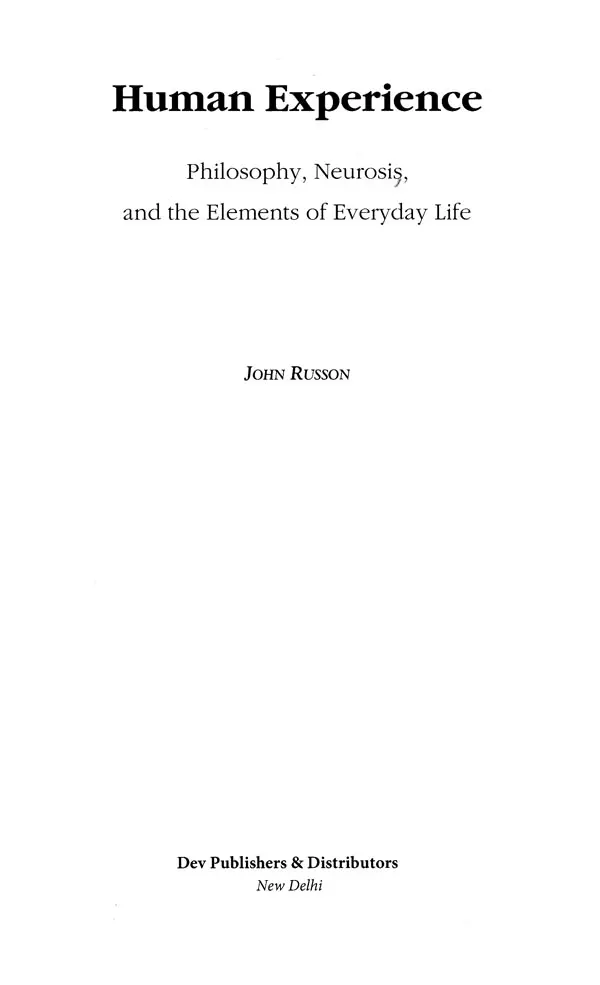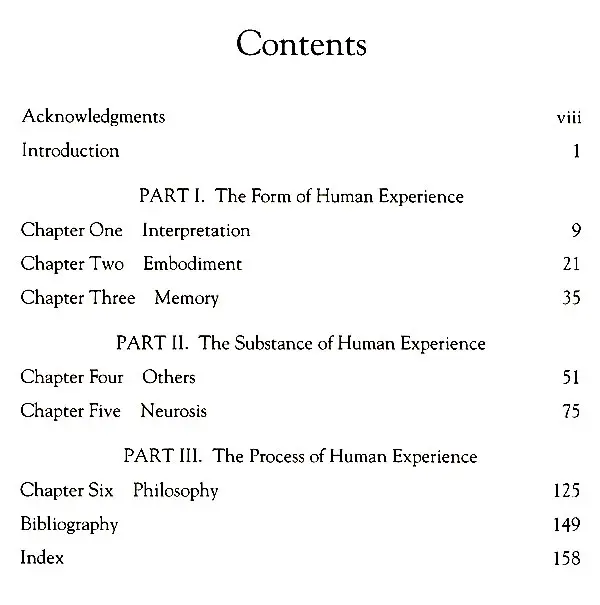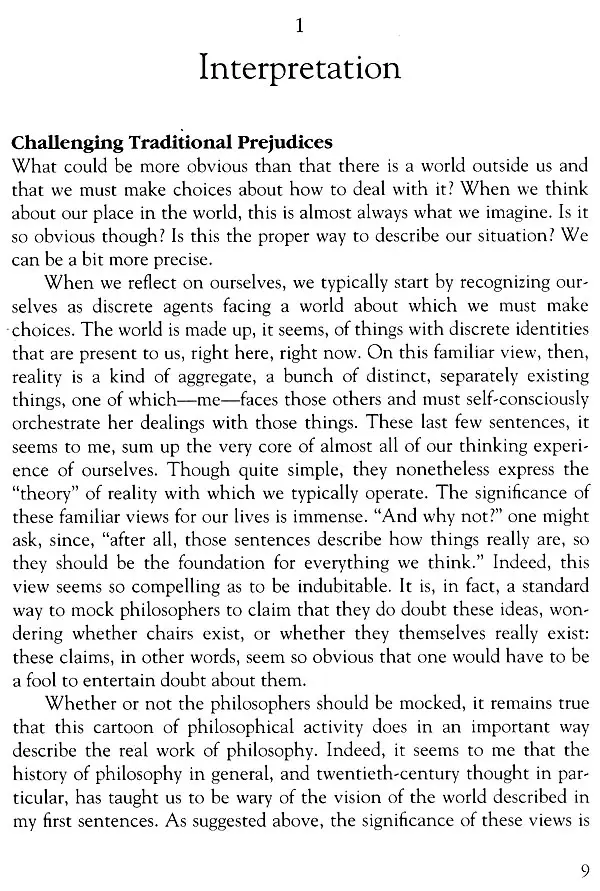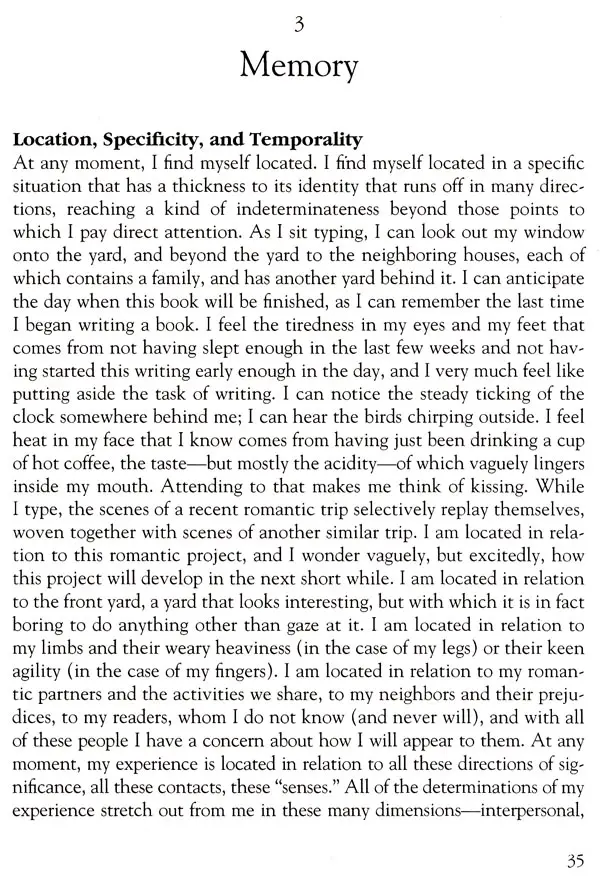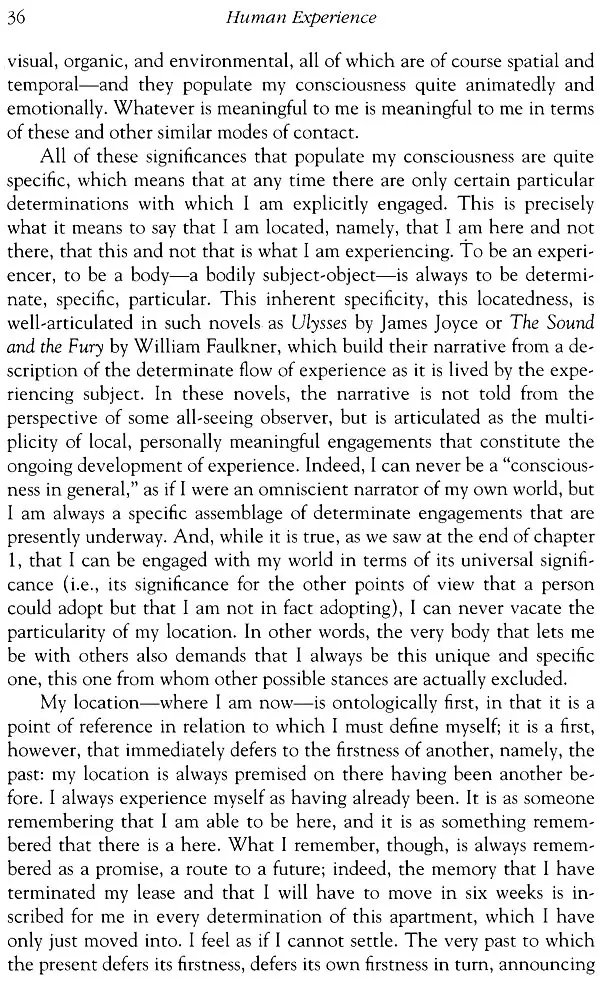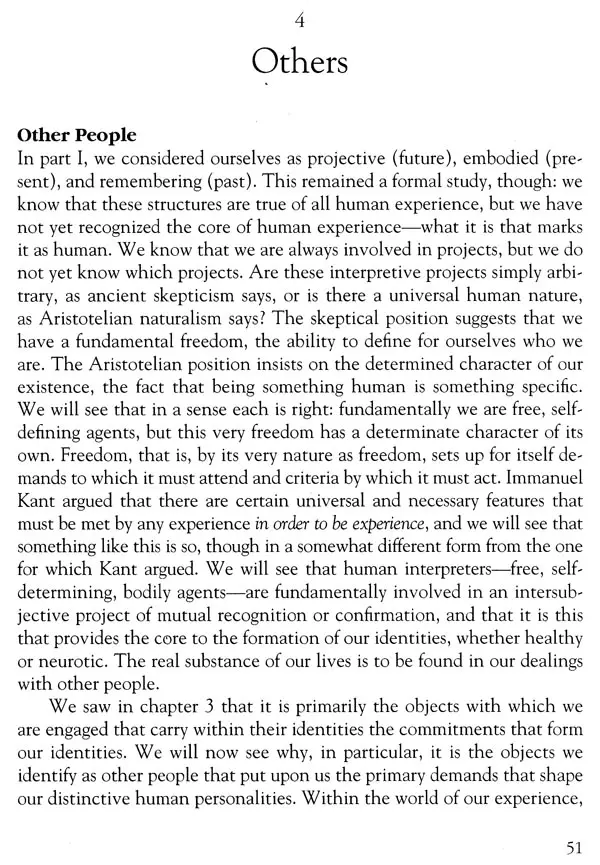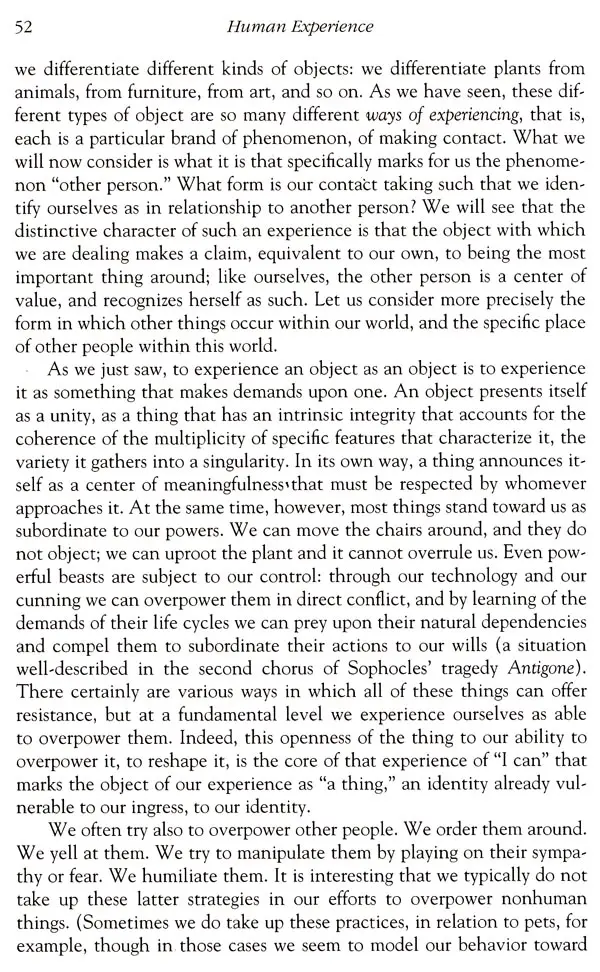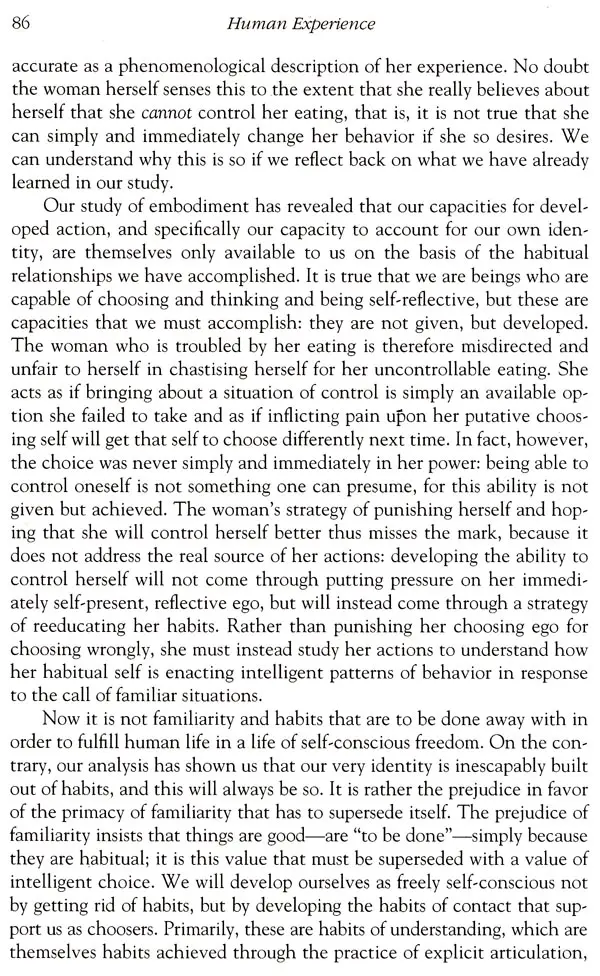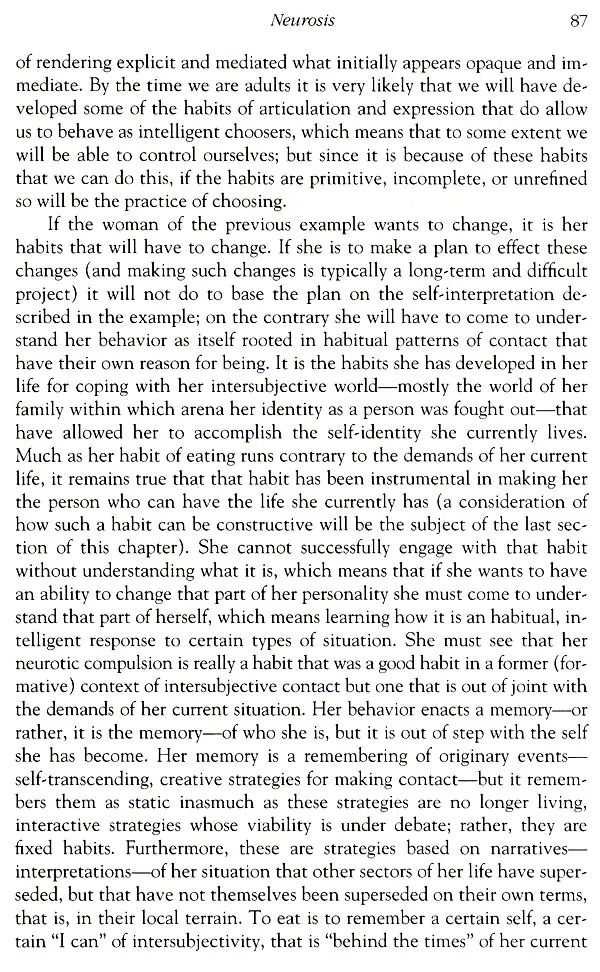
Human Experience - Philosophy, Neurosis, and the Elements of Everyday Life
Book Specification
| Item Code: | UAQ112 |
| Author: | John Russon |
| Publisher: | Dev Publishers and Distributors |
| Language: | English |
| Edition: | 2021 |
| ISBN: | 9789387496507 |
| Pages: | 170 |
| Cover: | PAPERBACK |
| Other Details | 9.00 X 6.00 inch |
| Weight | 230 gm |
Book Description
John Russon's Human Experience draws on central concepts of contemporary European philosophy to develop a novel analysis of the human psyche. Beginning with a study of the nature of perception, embodiment, and memory, Russon investigates the formation of personality through family and social experience. He focuses on the importance of the feedback we receive from others regarding our fundamental worth as persons, and on the way this interpersonal process embeds meaning into our most basic bodily practices: eating, sleeping, sex, and so on. Russon concludes with an original interpretation of neurosis as the habits of bodily practice developed in family interactions that have become the foundation for developed interpersonal life, and proposes a theory of psychological therapy as the development of philosophical insight that responds to these neurotic compulsions.
John Russon is Presidential Distinguished Professor of Philosophy at the University of Guelph. He is the author of The Self and Its Body in Hegel's Phenomenology of Spirit. He is also the coeditor (with John Sallis) of Retracing the Platonic Text and (with Michael Baut) Hegel and the Tradition. Essays in Honour of H. S. Harris.
Contemporary European Philosophy has revolutionized the way in which we think about ourselves. Over the last two hundred years, such thinkers as Martin Heidegger, Sigmund Freud, Karl Marx, and Jean-Paul Sartre have challenged all of our most cherished and traditional views about what a person is and about what the world is. They have introduced powerful and compelling alternatives that have for the first time allowed us to resolve some of our longest-standing philosophical debates and have given us rich resources for solving the personal and social problems that plague our daily lives. These insights, however, are still only beginning to transform our ways of thinking and acting, are still only beginning to have a place in the shaping of our social institutions. It is my intention to contribute to this gradual process of transformation with this attempt at articulating the understanding of the human situation that has emerged from this two-hundred-year ferment.
**Contents and Sample Pages**
